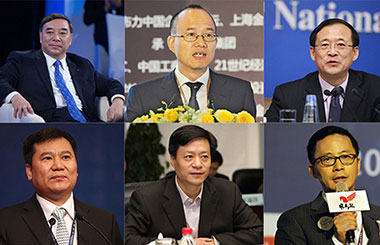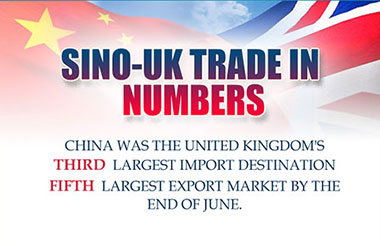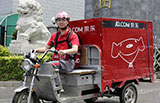New funds to open doors for yuan use
By Gao Changxin in Shanghai (China Daily) Updated: 2012-07-10 11:18
Mainland and Hong Kong stock exchanges on Monday introduced exchange-traded funds, or ETFs, that will track each other's main stock indexes in a step to strengthen ties between the two capital markets.
China Asset Management Co Ltd, a fund manager, released an ETF that will track the benchmark Hang Seng index and will be traded on the Shenzhen Stock Exchange. And E Fund Management Co Ltd has a new ETF that will be traded on the Shanghai Stock Exchange. It will track the Hang Seng China Enterprises Index, which measures the performance of mainland companies listed in Hong Kong. Issuances of the two funds started on Monday, and the Bank of China is acting as a custodian in those arrangements.
Meanwhile, a mainland ETF tracking the Shanghai Shenzhen CSI 300 Index won approval from Hong Kong's Securities and Futures Commission to trade on the Hong Kong Stock Exchange.
An ETF is an investment fund traded on stock exchanges, much like stocks. The introduction of the cross-border ETFs comes as the central government approved the establishment of a "mini-Hong Kong" zone in the city of Shenzhen last week to test out allowing yuan to flow more freely to and from Hong Kong.
Through the project, financial institutions in the zone will be encouraged to make yuan-denominated loans to overseas companies, and lenders in Hong Kong will be allowed to extend yuan-denominated loans to companies in the zone.
"The introduction of the ETFs is part of various policies meant to strengthen financial cooperation between Hong Kong and the mainland," said Wang Jianhui, chief economist with Southwest Securities Co Ltd, an investment bank.
Mainland equities slumped to a six-month low on Monday and the Shanghai Composite Index dropped 2.37 percent, or 52.77 points, to 2170.81 points. The slump comes as the National Bureau of Statistics said that the consumer price index eased to a 29-month low in June, raising concerns of deflation. Premier Wen Jiabao said the nation's economy is under "relatively large" downward pressure.
The Hang Seng Index was down 1.88 percent, or 372 points, to 19428.09 points at its close on Monday.
The introduction of the CSI 300 ETF in Hong Kong is being taken as a sign of progress for the Renminbi Qualified Foreign Institutional Investor program, or RQFII, which allows yuan held offshore to be invested in the mainland's capital markets. Brought into existence at the end of last year, the RQFII program allows a maximum of 20 billion yuan ($3.14 billion) in investments, only 20 percent of which are to go into equity.
Investors in the mainland already have access to Hong Kong's stock market through the Qualified Domestic Institutional Investor program, or QDII, which allows mainland fund managers to make overseas investments. For retail investors, though, ETFs are a better choice, as they typically charge less in commission fees and offer prices that are more stable. After QDII was introduced in 2006, the government said a maximum of $77.3 billion could be invested through it.
Wang said the new ETFs will do little to help investors diversify risks. Hong Kong and mainland stock markets, he explained, are already closely tied to each other.
More than 17 percent of the companies in the Hang Seng Index are red-chip companies, or mainland companies that are incorporated outside the mainland and are listed in Hong Kong. More than 8 percent are mainland companies, and many local companies in the index have a strong business presence in the mainland.
"To some extent, you are investing in the mainland's economy with both the benchmark index in Hong Kong and in the mainland," Wang said. Judged by valuation, he added, equities in the mainland are more attractive.
gaochangxin@chinadaily.com.cn
- Chinese listed company to buy Texas oil fields in 8.3b yuan deal
- China steel output falls, prices retreat
- Registered capital of entities triples in Tianjin FTZ
- China's 12th Five-Year Plan achievements a milestone for centenary goal
- Covestro chief bullish on China
- ICBC helps investors abroad
- China's rate cut to promote growth
- Fundamentals of China's economy remain unchanged: expert














